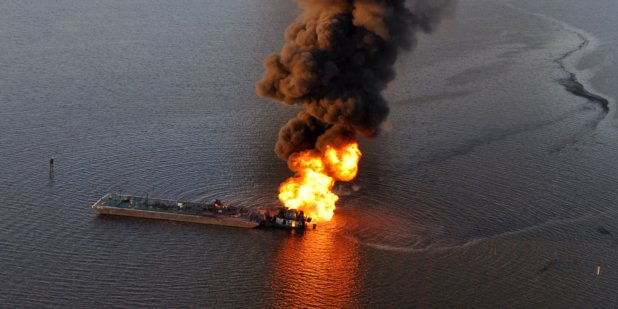- About
- Topics
- Story
- In-Depth
- Picks
- Opinion
- News
- Donate
- Signup for our newsletterOur Editors' Best Picks.Send
Read, Debate: Engage.
Divestment means getting rid of investments, in this case unethical ones.
The fossil fuel divestment movement has gained traction over the last five years thanks to a strong campaign by activist group 350.org that asks investors to commit to selling off coal, oil and gas investments over a period of five years.
The idea is to reverse the current trend of increasing carbon emissions. Fossil fuel companies have already found more than three times the quantity of fossil fuels that governments know can be safely burned without causing permanent, damaging climate change. And yet they continue to invest vast sums hunting for more to burn.
The aim of divestment is not to bankrupt fossil fuel companies financially but morally. By undermining the influence of these companies, smaller investors pave the way for politicians to create stronger carbon-cutting policies. If there are to be financial consequences, it will most likely be from these policies, rather than the original divestment.
Historically successful divestment campaigns have targeted apartheid in South Africa, the tobacco industry and Darfur: in all cases public pressure for divestment led governing bodies to write stronger policies against immoral practices.
If investors are able to move their investments to the clean energy sector, even better. These are the firms that will help drive our transition to a new, low-carbon world.
Who’s done it?
In March Oslo became the first capital city to commit to selling off its investments in fossil fuel companies, following 40 other (non-capital) cities who had led the way, including Oxford and San Francisco.
And in May Syracuse University committed to divest the largest sum so far: its $1.18bn endowment would be reinvested in clean energy technologies. A year earlier, Stanford agreed to move its investments out of the coal industry.
September 2014 saw a significant boon for the movement, when the Rockefeller Brothers Fund, named after John D Rockefeller who made his fortune in the oil industry, withdrew all fossil fuel investments from their $860 million fund.
“We are quite convinced that if he were alive today, as an astute businessman looking out to the future, he would be moving out of fossil fuels and investing in clean, renewable energy,” said president Stephen Heintz as the fund joined with 800 global investors pledging to divest from fossil fuels ahead of a UN summit on climate change.
The fund’s Chair, Valerie Rockefeller Wayne, said at the time that it just seemed wrong to be funding projects fighting climate change while continuing to invest in the companies who caused it. “We had investments that were undermining our grants.”
It is definitely organisations less interested in profits that are leading the divestment charge. But they also tend to be places where the public seek moral direction: universities, philanthropic organisations and faith groups. The World Council of Churches, representing half a billion Christians, ruled out all fossil fuel investments last year, and was followed by the Church of England this April when it moved its 9 billion GBP fund out of thermal coal and tar sands. Yes, churches need to make money, too. But it seems they are keen to be among the first to push for investments that are morally stable.
“The church has a moral responsibility to speak and act on both environmental stewardship and justice for the world’s poor,” said Rev Canon Prof Richard Burridge, deputy chair of the Church of England’s ethical investment advisory group.
The Guardian’s ‘Keep it in the Ground’ campaign is lobbying the Bill and Melinda Gates Foundation and the Wellcome Trust, the world’s largest charitable foundations and funders of medical research, to join the cause and divest.
What about my money?
One major argument for fossil fuel divestment is that it’s just good business. Of course, if climate change is countered and we create a low-carbon society, investments in fossil fuels will be virtually worthless.
But divestment in the meantime still makes sound financial sense. Those who have divested from coal in recent years have already avoided losses, as coal stocks have continued to plummet in value. And major financial institutions including HSBC, Goldman Sachs, Standard and Poor’s and Citi have all warned of the volatility of fossil fuel investments and the risks they involve.
At the same time, if divestment does not happen gradually, investors stand to lose trillions if the carbon bubble bursts.
What about the developing world?
Fossil fuel supporters often argue that coal, oil and gas are necessary for improving the lives of the world’s poorest people, by developing their nations and industries to pull them out of poverty and reach the same standards as the developed world.
But won’t climate change extend the reach of poverty?
Exactly, says the UN’s Intergovernmental Panel on Climate Change. In its most recent report, approved by 195 countries after being written and reviewed by thousands of top climate experts, the IPCC concluded that climate change “is a threat to sustainable development”, and this is driven by the burning of fossil fuels.
Global warming, the report said, will be damaging to humans and “limiting its effects is necessary to achieve sustainable development and equity, including poverty eradication”.
Just to make it clear: the impacts of climate change are set to “prolong existing and create new poverty traps”.
So there goes that theory.
Divestment is the most sure-footed first step to creating the conditions for reducing climate change and the irreversible, damaging impact it will have on human beings.
How we can channel clean energy to developing countries remains to be seen, but arguing that fossil fuels are necessary for development is pointless: any development achieved in poorer countries will be diminished if people continue to be subjected to the effects of climate change.
